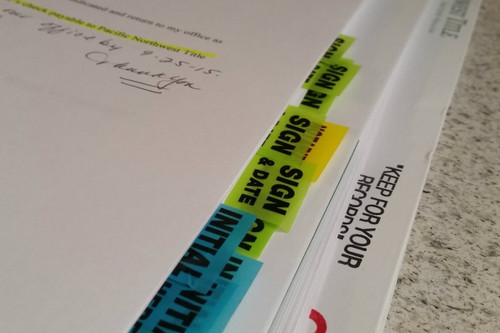Product Description
Abstract
The financial crisis of the late 2000’s has just hit and more than 10 million homes have been foreclosed upon in the matter of a few years.
The American public is outraged and demanding that politicians take action. Much of the blame for the crisis has fallen on banks, especially the five banks with the highest percentage of U.S. residential mortgages: Ally (formerly known as GMAC), Bank of America, Citi, JPMorgan Chase, and Wells Fargo (collectively known as “The Five”). In an effort to hold The Five accountable, a multi-state working group comprised of all fifty state attorneys general, state Banking Commissioners and the Department of Justice have decided to pursue action against them.
Mortgage Crisis Call provides participants with the opportunity to practice facilitating a conference call. The purpose of the call is to agree on a strategy for addressing five major banks’ contributions to the mortgage crisis. Participants on the call play the roles of prominent attorneys general from around the country, including U.S. Attorney General Eric Holder, who are leading the charge to hold The Five accountable. They will need to decide whether they want to pursue unified litigation, and if so, what form this will take.
The call is an exercise in facilitating a conference call. Each of the participants on the call has a distinct set of interests, often enmeshed in their political calculations and their histories of working on this issue. These interests come together in their attitudes about how to settle with The Five. The facilitator of the call must therefore balance these competing interests and complex power dynamics.
Importantly, the exact role of each participant on the call is left up to the group. For a variety of reasons, several members of the special committee believe that it is their role to facilitate the call. Participants have an opportunity to explore the ways in which a facilitator or facilitators can shape a multi-party negotiation, particularly in a situation where there is no designated official facilitator. Moreover, it comes as a surprise to them to find out that there are in fact others who plan to facilitate. This element of surprise exacerbates power dynamics and heightens the need for clarity about roles and responsibilities on the call.
The hypothetical Mortgage Crisis Call is designed to be done by conference call, giving students a chance to practice facilitating through that medium. The simulation can also be done as an in-person multi-party negotiation, though the conference call format is suggested. The ideal group size is six participants (or any multiple of six) to fill all six of the roles. It is also possible, though not ideal, to eliminate one or two of the non-facilitator roles and run the simulation in groups of fewer than six participants. For a robust debrief, it is preferable to have at least two different groups negotiating the case. It is suggested that instructors allot 90 minutes for the negotiation and 60 minutes for debriefing.
This product includes General Instructions for all participants. There is also a teaching note and sample memo available for this product.
Learning Objectives
This case provides an introduction to thinking about the process of group decision making. Students will learn:
• To explore the ways in which multi-party negotiations can be shaped, assisted, and changed by a facilitator or facilitators.
• To facilitate a group process when the group has not designated an official, skilled facilitator;
• To adapt to various modes of communication when facilitating a group that is spread out geographically;
• To recognize the range of possible options for structuring a meeting;
• To highlight potential challenges when a facilitator is not neutral and has a stake in the overall outcome;
• To uncover the underlying interests of each person in a meeting, particularly when political agendas are at play;
• To negotiate against the backdrop of different kinds of information and participants’ differing or competing value systems;
• To respond to varying levels of previous contact amongst the participants in a meeting;
• To address power dynamics in a multi-party negotiation.
Subjects Covered
Facilitation; Conference Call; Multiparty Negotiation Process and Strategy; Power Dynamics in a Negotiation; Financial Regulation; Mortgage Crisis
Setting
Geographic: United States
Industry: Government regulation and banking
Event Begin: 2012
Accessibility
To obtain accessible versions of our products for use by those with disabilities, please contact the HLS Case Studies Program at hlscasestudies@law.harvard.edu or +1-617-496-1316.
Educator Materials
This review copy is watermarked and is for review only. It contains a pdf file with the product listed above and a teaching note.
If you would like to purchase this case study, go to the case study product page. Please note that each purchase of this product entitles the purchaser to one download and use. If you need multiple copies, please purchase the number of copies you need. For more information, see Copying Your Case Study.



